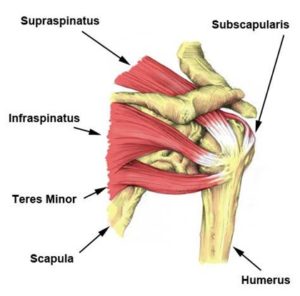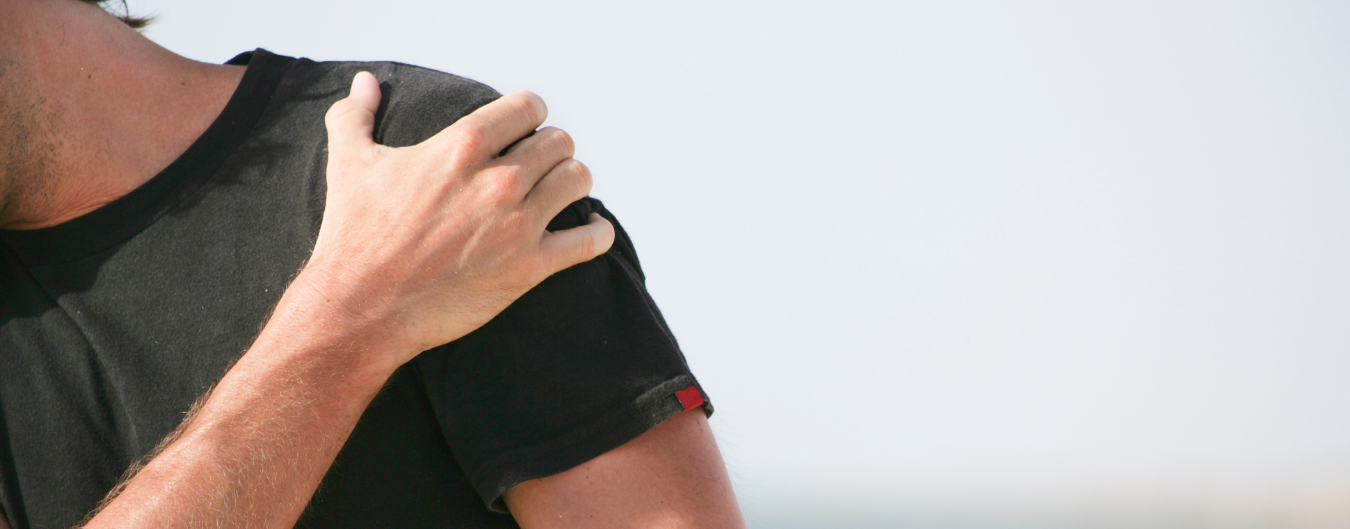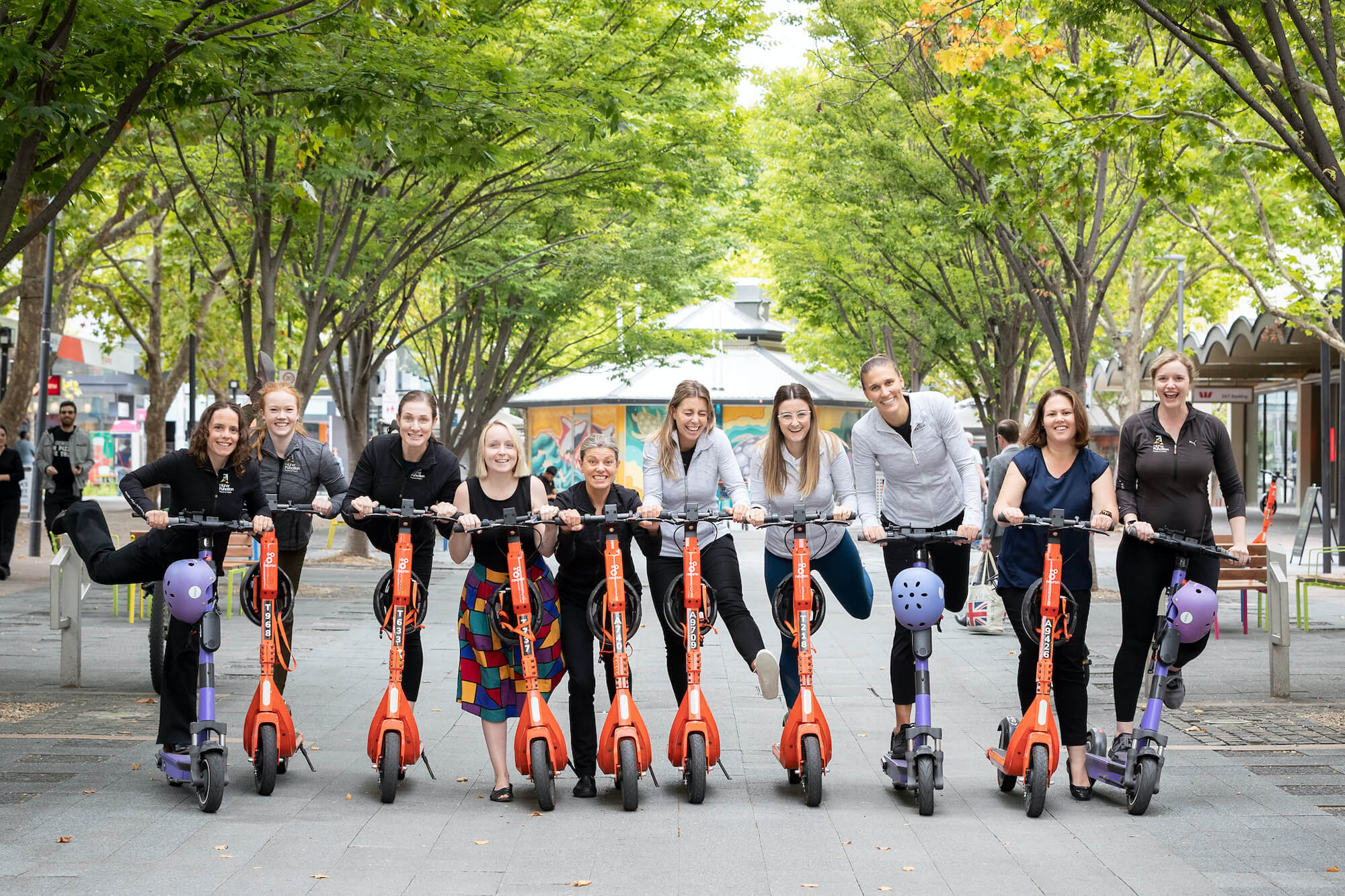By Andrea Rich – Physiotherapist
What is the rotator cuff?
The rotator cuff refers to the group of 4 muscles and their tendons that provide strength and stability to the shoulder. The muscles attach from the shoulder blade to the upper arm bone, forming a cuff around the shoulder joint. They contribute to the stability of the shoulder joint an they also help with rotation movements of the arm, like putting on your seatbelt.

Common rotator cuff injuries:
Injuries to the rotator cuff are common and can be due to an acute injury such as a fall or overuse injuries such as sports or repetitive overhead activities. Poor biomechanics and postures such as slouched postures and rounded shoulders can contribute to a rotator cuff injury as we get older.

A rotator cuff tear can be acute or chronic, meaning it can be from a new injury from too much load or repetitive micro-traumas over time. The tear can occur in the muscle or its tendon and can range from a micro-tear to a complete tear.
A rotator cuff tendinopathy is commonly a chronic overuse or repetitive strain injury (repeated microtrauma) which causes degeneration to the tendon over time.
Shoulder Impingement is when a rotator cuff muscle gets compressed between the head of the humerus and the acromion process of the scapula. If this is repeated it makes the tendon inflames and swollen. This can be caused by poor posture, poor biomechanics, or overloading the shoulder from an increase in activity.
Shoulder Bursitis can be associated with Shoulder impingement and is when the fat pad ( bursa), which acts as a cushion between the tendon and the bone, also becomes inflamed. This may require a Cortisone injection, if it does not settle with Physio treatment.
Common symptoms of rotator cuff injuries:
- Pain around the shoulder and upper arm, and if bad, even at rest,
- Clicking in the shoulder when lifting the arm up,
- Painful and stiff shoulder range of motion, commonly from 90-180 degrees with out to side movement and up overhead (abduction) movement,
- Pain with putting your hand behind your back,
- Pain with lying on the affected side,
- Weakness of the muscles in the shoulder and around the shoulder blade
- Functional limitations such as difficulty with overhead movements
Physiotherapy treatments
Physiotherapists can assess your shoulder and perform diagnostic tests to determine the cause of your shoulder pain. The treatments for rotator cuff injuries are commonly conservative and focus on:
- Pain management which may include manual therapies such as massage and mobilisations to decrease muscle tightness and regain range of motion, as well as the use of other modalities such as taping and heat packs.
- Regaining range of motion and decreasing stiffness of the shoulder through the use of specific exercises as well as manual therapy such as mobilisations of the shoulder and thoracic spine.
- Strengthening while using the principles of gradual increase in loading of the muscle and associated tendons.
- Activity modifications to reduce overloading of the injured area whilst maintaining movement and strength.
- Regaining proprioception and neuromuscular control of the muscles around the shoulder and shoulder blade for optimal recovery.
Our Clinical Exercises Classes, or specific individually designed gym sessions on our Pilates studio equipment can help to strengthen and stabilise the shoulder region and upper back for optimal recovery. Speak to your Physio about which class would suit you.


